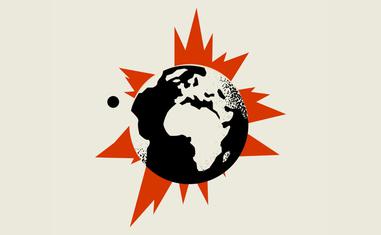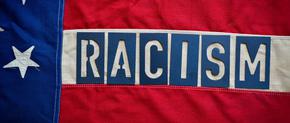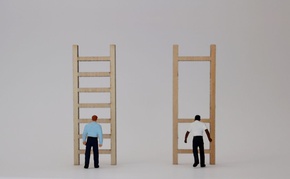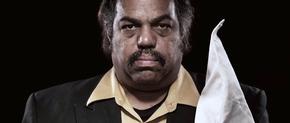The views expressed in our content reflect individual perspectives and do not represent the authoritative views of the Baha'i Faith.
With all the issues that currently face humanity, many have come to think of our future as unavoidably bleak – which has produced a spate of apocalyptic portrayals in film and literature.
This perception has become so widespread that one of the bleakest and most popular of these dark books – The Road, by Cormac McCarthy – won the Pulitzer Prize and several other awards. That powerful post-apocalyptic novel, first published in 2006, was then made into a grim and very successful film in 2009.
In case you haven’t heard the story, and without giving too much away, it’s set in a post-apocalyptic world where a father and son struggle to survive the horrors that happen after the collapse of human civilization. The film version of The Road highlights the notion that the will to survive drives people to the savage extremes of human nature, all while presenting the challenge of living with dignity.
RELATED: The End of the World—As We Know It
Baha’u’llah, the prophet and founder of the Baha’i Faith, asked us all to: “Be anxiously concerned with the needs of the age ye live in, and center your deliberations on its exigencies and requirements.” Baha’u’llah gave us several warnings about what could happen to us if we failed to respond to humanity’s needs – but the Baha’i teachings also stress that the ultimate destiny of the human race is unimaginably bright. Abdu’l-Baha assured us of the prophecies of Isaiah destined to be fulfilled during the dispensation of Baha’u’llah:
… the earth will become another earth and the world of humanity will be arrayed with perfect composure and adornment. Strife, contention, and bloodshed will give way to peace, sincerity, and harmony. Among the nations, peoples, kindreds, and governments, love and amity will prevail and cooperation and close connection will be firmly established. Ultimately, war will be entirely banned … The five continents of the world will become as one, its divers nations will become one nation, the earth will become one homeland, and the human race will become one people. Countries will be so intimately connected, and peoples and nations so commingled and united, that the human race will become as one family and one kindred.
This great peace awaits us, the Baha’i teachings say if we can unite. So for Baha’is, fictional stories like The Road might seem like a pure indulgence in pessimism. But while Baha’u’llah does give us the promise of a future world at peace, he also warns us that the road to peace may include severe trials that humanity has to go through because of its inability to see the truth and embrace unity:
The world is in travail, and its agitation waxeth day by day. Its face is turned towards waywardness and unbelief. Such shall be its plight, that to disclose it now would not be meet and seemly. Its perversity will long continue. And when the appointed hour is come, there shall suddenly appear that which shall cause the limbs of mankind to quake. Then, and only then, will the Divine Standard be unfurled, and the Nightingale of Paradise warble its melody.
Due to our lack of foresight and our unwillingness to change now, we may be forced to change when our problems become much more dire. Interestingly, scientists tell us there have been times in human history when the world’s population shrank to barely five or ten thousand souls, some say much less – and yet we are here today, eight billion strong.
With the severe challenges the world currently faces, our numbers could dwindle dramatically again. Out of the ashes of the desperate trial we have chosen to face, the Baha’i teachings assure us that we will finally learn to embrace each other in unity. However, if we can learn from our mistakes and address our problems now, we can potentially avoid bringing ourselves to the brink of extinction and savagery, like The Road so bleakly envisions.
As grim as they may be, what can dystopian stories like The Road do for us?
RELATED: We Must Face the Risks to the World’s Future – Now
They can certainly help humanity see the potential of a bleak future so that we can take stock now, reflect, learn, and change our course. When great artists portray the darkest possible aspects of humanity, we can start to sense those very elements in our own psyches and behaviors. We can perceive the cruel and animalistic urges within, however embryonic, and grow vigilant in their taming. We can have a taste test of the pain of disaster, and avert it from happening, so we will never have to taste it first-hand.
We now stand at a crucial point in history, with the world’s atmosphere and ecosystems losing their equilibrium, when advanced weaponry threatens the very lives of innocent people around the world, when justice and freedom-seeking individuals desperately try to flee the dire conditions of their homelands in the hope of partaking of some bread at the same table as their privileged brethren.
Now is the time we must one and all look deep within and reach for the reigns of justice and hope, so we can steer our course upward and away from our old world order.
From a Baha’i perspective, this means many things: loving each other, forgiving each other, and helping each other.
For me, all of those things mean I need to consume less, drive less, eat less meat, turn off the air-conditioner, ride a bicycle, use a refillable water bottle, dry my family’s clothes in the sun, plant a garden, vote for leaders with principles, pray and actively work for peace, get to know and connect with my neighbors, welcome strangers — and most importantly, search for and find the deep spiritual resources that help us all walk the road forward.
What stands behind all these efforts is my firm Baha’i belief that not only is the Most Great Peace possible, it is inevitable – because despite the troubles we create for ourselves, the Hand of God always guides us.

















Comments
Sign in or create an account
Continue with Facebookor